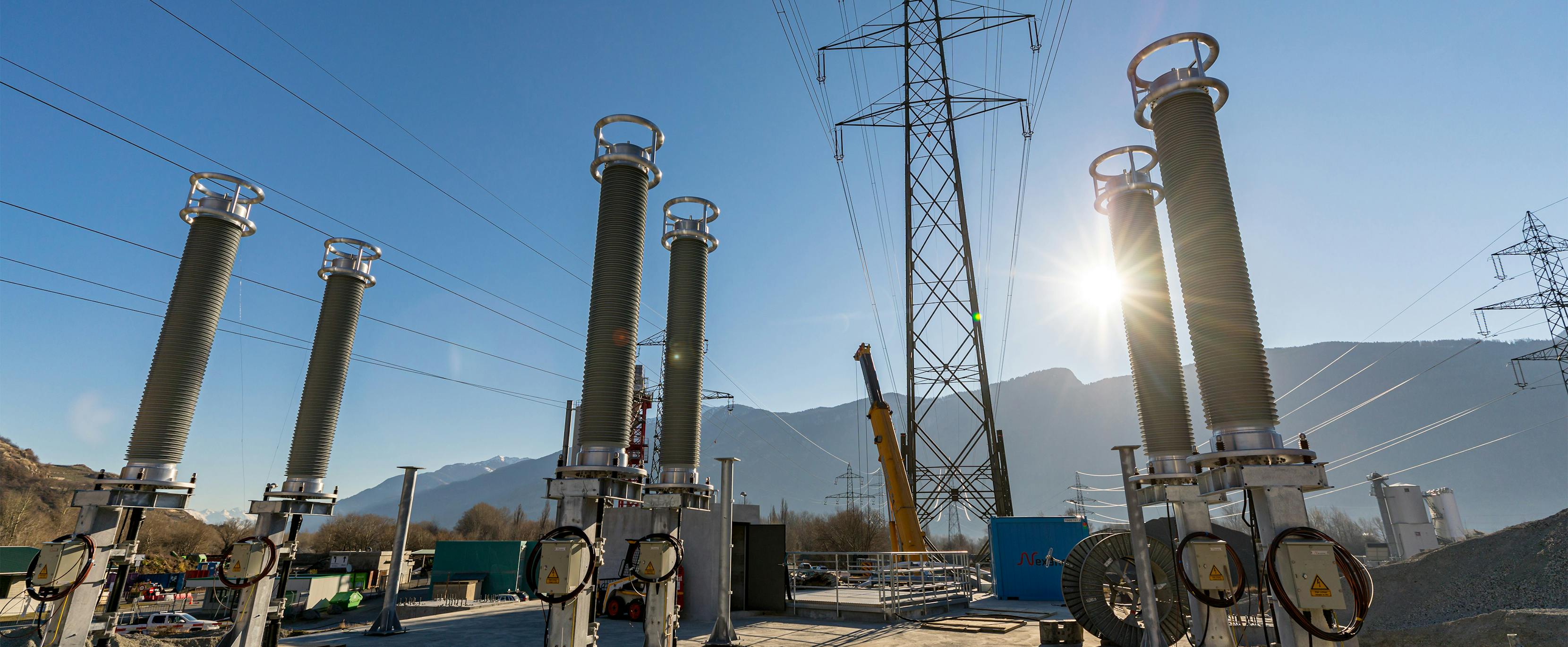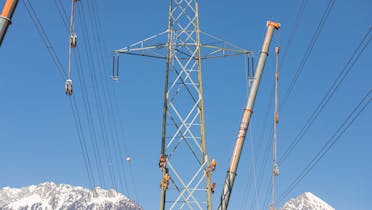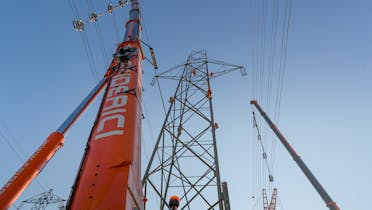
The final phase of the La Bâtiaz – Le Verney underground cable link is in progress. Now that the twelve cables have been laid in the underground gallery drilled into the Rhône plain in Martigny between the La Bâtiaz substation and Le Verney, it is time to complete the last link in the chain: establishing the connection between the underground cables and the conductor cables on the Chamoson – Romanel 380 kV overhead line.
Two essential elements for this connection are currently under construction in Le Verney:
Replacement of pylon 51
One vital step before replacing this pylon is to ensure that the conductor cables for the overhead line remain at the same height once they have been removed from the insulators. During the dismantling and erection of the new pylon 51, the conductor cables are therefore temporarily suspended in pulleys from two 350-tonne mobile cranes. After disconnecting the old pylon 51 from the conductor cables, it has to be dismantled in stages using a 700-tonne crane. The same crane will be used to assemble the new pylon, section by section, with the help of workers on the pylon and on the ground. As soon as the assembly of the last piece is complete, the conductor cables suspended from the two cranes will be attached to the new pylon, which can then take on its brand new role: instead of acting as a support pylon to hold the conductor cables, it will become a 54-tonne tension pylon to anchor the conductor cables. This modification will allow the conductor cables on the Chamoson – Romanel overhead line to pass through the gantry to be connected to the underground cables.
The gantry
This rectangular metal element, which is 21 metres wide and 18.5 metres high, serves as a link between the conductor cables on the overhead line and the underground cables. These cables come out of the Verney shaft and are equipped with cable heads that are five metres high, installed under the gantry. The overhead conductor cables, moored to the gantry, are then connected to the cable heads by conductor cable bridges.
In service by spring 2022
The La Bâtiaz – Le Verney underground link is the last of the three sections of the 380 kV line that connects the Nant de Drance pumped storage power plant to the extra-high-voltage grid still under construction. This is a first for Swissgrid: the 2.5-metre-diameter tunnel, which is bored by a mini-tunnel at a depth of 12 to 20 metres, houses the twelve underground extra-high-voltage cables and runs between different layers of groundwater over a distance of 1.2 kilometres. This technological feat has been made possible thanks to the specific geological conditions present at this exact location in the Rhone plain. It is expected to be commissioned in the spring of 2022.
Adapting the extra-high-voltage grid to the energy revolution
Hydropower plays a major role in the energy revolution. Several projects for the construction and adaptation of extra-high-voltage lines are under way in the Valais in order to increase the capacity to transport the electrical energy produced by the Valais power stations to the country’s major consumption centres. Modernising the transmission grid is the key to a sustainable energy future. As the backbone of a secure electricity supply, the extra-high-voltage grid makes an important contribution towards achieving the objectives of the federal government’s Energy Strategy 2050.












